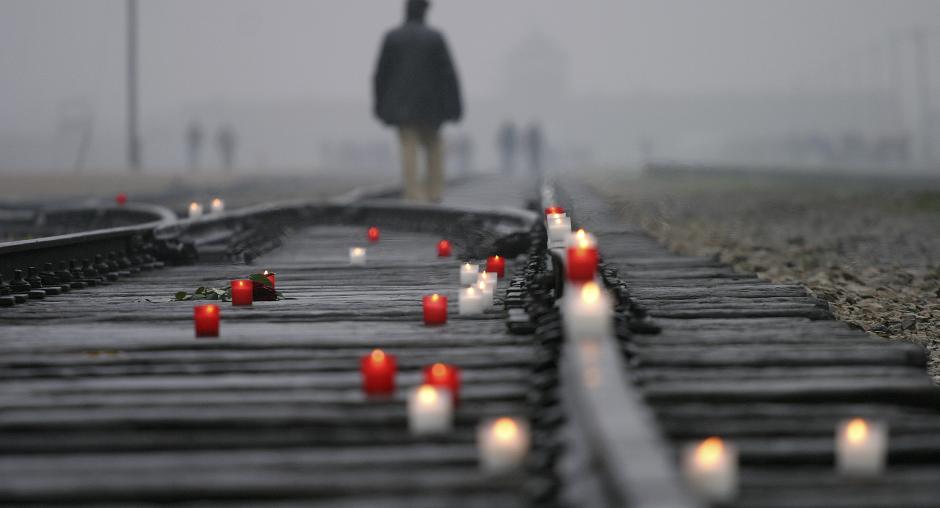On International Holocaust Remembrance Day, OSCE calls for increased education to counter intolerance

“Today we commemorate the six million murdered European Jews, the Sinti and Roma, forced labourers, we commemorate the prisoners of war perished by starvation, the victims of euthanasia, the homosexuals and all those that defied the terror for religious and political motivations or simply for reasons of humanity,” said the OSCE Chairperson-in-Office, German Foreign Minister Frank-Walter Steinmeier.
“The darkest chapter of Germany’s history has marked our identity; it will remain linked to our country. There is no letting go of the past in history,” Steinmeier added. “We all have the responsibility to pass this commemoration on to future generations and to intensify education, dialogue and personal exchanges to this end.”
“This day urges us to remain aware of the burden borne by and fate of refugees today seeking shelter in Europe from persecution, hatred, war and terror,” the Chairperson-in-Office said. “And we also take seriously the concerns raised by the arrival of this large number of people. If Jews and people of different religions and beliefs cannot feel safe in Europe, none of us can feel safe.”
Steinmeier emphasized that countering anti-Semitism is an important focus among the goals of the German OSCE Chairmanship in 2016.
“Standing up against all forms of racism and discrimination remains a priority for us,” he said. “Germany has placed the promotion of tolerance and non-discrimination high on this year’s OSCE agenda.”
“As we mark the 71st anniversary of the liberation of Auschwitz-Birkenau, remembering the Holocaust is a fundamental part of the process of learning from our past to better shape our future,” said Michael Georg Link, Director of the OSCE Office for Democratic Institutions and Human Rights (ODIHR). “However, remembrance alone is not sufficient: It should be accompanied by long-term educational projects that help societies effectively counter racism and intolerance, as well as effective efforts to ensure security for Jewish communities across the OSCE area.”
In parallel to its efforts to promote Holocaust remembrance, including educating about and remembering Roma and Sinti victims of the Nazi regime, ODIHR will soon begin implementing a three-year project to identify and respond to the security needs of Jewish communities, promote tolerance through education, and strengthen civil society through coalition-building activities.
“Paying tribute to the victims of the Holocaust is only the first step,” said Rabbi Andrew Baker, the Personal Representative of the OSCE Chairperson-in-Office on Combating Anti-Semitism. “It remains crucial, especially in light of recent anti-Semitic incidents that have left an increasing number of Jews uncertain about their future, that our efforts to counter anti-Semitism and promote tolerance and acceptance be stronger than ever.”
Today’s statement follows a 21 January session of the OSCE Permanent Council that focused on Holocaust remembrance as a joint task. State Secretary Szabolcs Takács of Hungary, which is this year chairing the International Holocaust Remembrance Alliance (IHRA), and Ambassador Felix Klein, Special Representative of the German Federal Foreign Office for issues relating to Anti-Semitism and Holocaust Remembrance, addressed the permanent representatives from all OSCE participating States and Partners for Co-operation. They stressed that remembrance of the Holocaust provides a stark reminder of the duty to speak out against the denial of these grave crimes and to work for tolerance and non-discrimination in our societies.
ODIHR works actively to promote Holocaust remembrance and education. Moldova became the 28th OSCE participating State that observes 27 January as International Holocaust Remembrance Day when it formally adopted the day in November 2015. An overview of commemorative practices can be found on ODIHR's website at: www.osce.org/holocaustmemorialdays.
